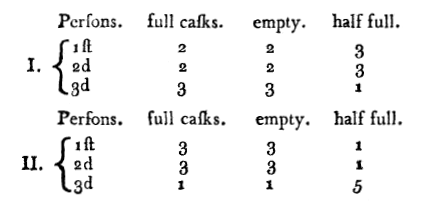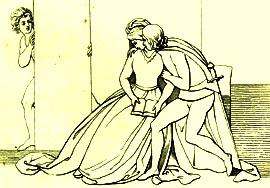In 1948, while a student at Cambridge, future MP Humphry Berkeley conceived “the only practical joke that I have played in my life.” He invented a public school called Selhurst and, writing on fake letterhead, began to send letters to public figures posing as its eccentric headmaster, H. Rochester Sneath.
Sneath invited George Bernard Shaw to speak, William Reid Dick to erect a statue, and Giles Gilbert Scott to design a new house at Selhurst (all declined). But mostly he plagued and bewildered the masters of English public schools, seeking advice regarding rats, ghosts, and other peculiar problems at his college. In March 1948 he sent a warning to the master of Marlborough College:
Dear Heywood,
I am writing you this letter in the strictest confidence. I understand from a Mr. Robert Agincourt who was Senior French Master at Selhurst, for one term two years ago, that he is applying for a post on the staff of Marlborough College.
He has asked me if I could give him a testimonial to present to you and I told him that by no stretching of veracity was I able to do this. You will understand that nothing that I have to say about Mr. Agincourt is actuated by any personal malice but I feel it my duty to inform you of the impression that he gave while he was at Selhurst.
During his brief stay no less than five boys were removed from the school as a result of his influence, and three of the Matrons had nervous breakdowns. The pictures on the walls of his rooms made a visiting Bishop shudder and would certainly rule out another Royal visit. His practices were described by the Chairman of the County Hospital as ‘Hunnish.’ The prominent wart on his nose was wittily described as ‘the blot on the twentieth century’ by a visiting conjuror.
As you cannot fail to have noticed, his personal appearance is against him, and, after one memorable Carol Service, a titled Lady who was sitting next to him collapsed in a heap. He was once observed climbing a tree in the School Grounds naked at night and on another occasion he threw a flower pot at the wife of the Chairman of the Board of Governors.
Should you wish any further information, I should be glad to furnish it for I could not wish another Headmaster to undergo the purgatory that I suffered that term.
(When the Marlborough master replied that the man had not approached him, Sneath reported that he had abandoned the idea of an academic career and “has now become a waiter in a Greek restaurant in Soho.” He also asked for the name of a good private detective and a nursery maid.)
When Sneath wrote to The Daily Worker complaining that he was being prevented from teaching compulsory Russian at Selhurst, a reporter exposed the hoax. The master of Pembroke College formally rebuked Berkeley and barred him from the college for two years — though, Berkeley wrote, “I think that I saw a twinkle in his eye.”




